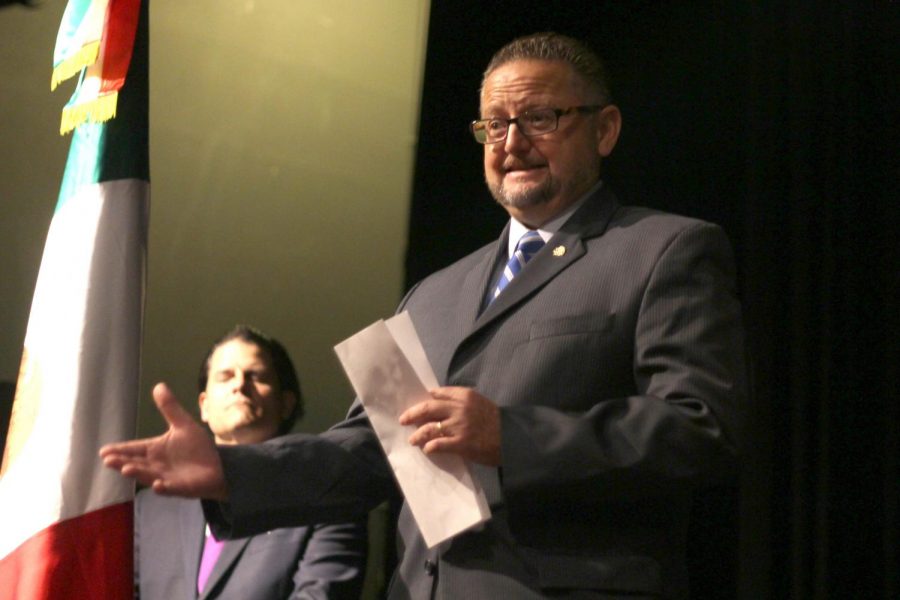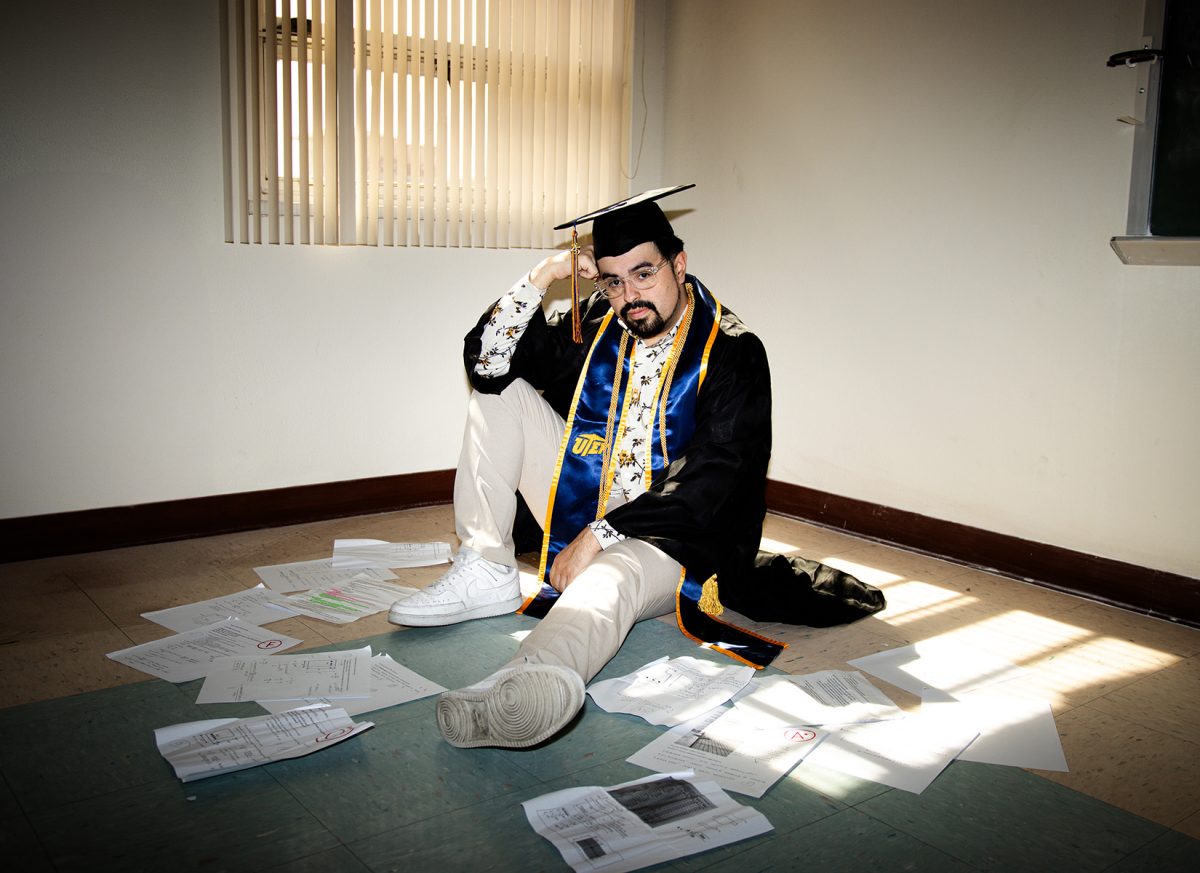The Consulate General of Mexico in El Paso in cooperation with UTEP and the Centro Cultural Paso del Norte debuted the Época de Oro Film Festival at 6 p.m. Wednesday, Sept. 4, at UTEP’s Union Cinema. Every Wednesday for the entire month of September, members of the community will have the chance to watch films from Mexico’s “Golden Age” of cinematography. The first film of the month-long weekly series was the classic “Enamorada” starring María Félix and Pedro Armendáriz, directed by Emilio Fernández.
The goal of the Época de Oro Film Festival is to promote Mexican films that were produced between 1936 and 1959 which saw critical economic success and international recognition, said Mexican Consul General Mauricio Ibarra Ponce de León.
“Lo que queremos es que también se conecten a las raíces de México,” he said. (What we want is also to connect to the roots of Mexico.)
“Enamorada” takes place during the Mexican Revolution of the early 1900s, in the Mexican town of Cholula, Puebla. The film’s protagonist is the feisty Señorita Beatriz Peñafiel played by Félix, and its antagonist is the macho General José Juan Reyes played by Armendáriz.
Inspired by William Shakespeare’s “The Taming of the Shrew,” the film tells the story of a strong-willed woman, Peñafiel, who challenges the male authority figure of the film.
The film begins with Reyes conquering Cholula with intentions to extort the town’s wealthy to fund the Mexican Revolution. Among the wealthy is the Peñafiel family, which is how Reyes eventually crosses paths with Beatriz. After their initial encounter, Reyes becomes infatuated with the gutsy yet beautiful Peñafiel, prompting him to overtly pursue her.
Throughout the film, Peñafiel defies the stereotypical mold of a gentle woman by playing several pranks on Reyes, which adds comedic elements to the film. This masculinizes her, and more so because throughout the film Reyes intimidates other men.
“It is really almost like a caricature but in a good way,” said Diane Afoumado who attended the screening. “Women can lead also, and it is quite powerful in this movie.”
Reyes, the film’s symbol of machismo, becomes emasculated in his pursuit of Peñafiel. After the scene where Reyes slaps both Peñafiel and Padre Rafael Sierra, Reyes finally connects with his feelings and learns how to apologize.
The film is just one of six that will be screened at the Union Cinema throughout the month. Regarding the lessons these films can teach society, Ibarra Ponce de León believes these films make commentaries on how to respect women, and how to value the present among other things. He said the films in festival all have diverse themes.
Series Schedule
Sept. 11
6 p.m., “Macario,” by Roberto Galvadón
8 p.m., “Una Familia de Tanta,” by Alejandro Galindo
Sept. 18
6 p.m., “El Rebozo de la Soledad,” by Roberto Galvadón
8 p.m., “La Perla,” by Emilio Fernández
Sept. 25
6 p.m., “Salón México,” by Emilio Fernández
8 p.m., “Ahí Está el Detalle,” by Juan Bustillos












